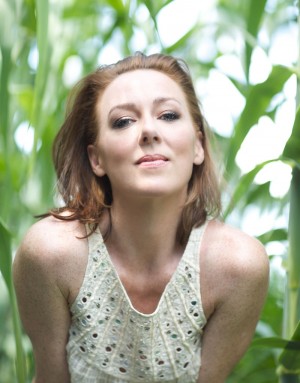Jonatha Brooke Gives Us the Works
GALO: How many albums do you have out now?
JB: I think I have ten or eleven total. I have two with The Story and nine or ten on my own.
GALO: And The Story was your first musical project?
JB: Yes, that was my first band back in the early ’90s in Boston. And we performed all over the country. That’s when I was signed to my first major label deal with The Story and that was with Jennifer Kimball.
GALO: I think I know the answer to this, but on your album 10 cent Wings, you have the song “Glass Half Empty,” in which you sing, “I hope you’re happy with your glass half empty.” How do you see the world?
JB: Definitely half full. In fact, three quarters full. I feel lucky every day. As much as there’s heartbreak and loss, I’m very lucky. I have amazing friends and family and I’m still in love with my husband, and I’m very lucky to be doing what I love.
GALO: When did you realize that music was going to dominate your life?
JB: I kind of came to it late. I had inklings of it in college, when I first started writing songs, and that was really like being hit by lightning because I had been a pretty hardcore dancer up to that point. I continued dancing through college and I was a modern dancer professionally after college. So I was about 29 or 30, which is when I was juggling everything, but that’s when I got the record deal that decided everything. Dancing is the thing that fell by the wayside and music took over when I was about 30.
GALO: You always appear so at ease in front of a crowd. Was this always the case?
JB: It’s definitely something that develops. In the early days, I think most people would admit they are terrified, especially terrified in-between the songs — that’s the hardest skill to develop, the patter in-between as you’re tuning or getting ready to start the next song. The first few gigs you’re just panic stricken, because you don’t know what to say and how you’re going to introduce the next song, and there’s always these awkward silences. I’ve actually gotten really good at that part and very comfortable with joking around or telling stories. That’s become one of my favorite parts of performing, talking to the audience and involving them. As an audience [member], I love it when I get that from a performer, so I try to give what I would like.
GALO: What are your feelings about the contrast in production styles between Bob Clearmountain on Careful What You Wish For and the more Americana style of The Works as well as your earlier albums such as Plumb?
JB: My biggest hope is to never do the same thing twice. So the production styles are very much my own wanting to challenge myself and go somewhere new, or at least somewhere different from the last record. So Careful What You Wish For was a little more poppy, guitar based, and edgy than the record before Back in the Circus, which was very intimate and a little more machine sounding and smaller scale, smaller spectrum. And then The Works needed to be reverent toward an old school approach. It needed to be a little bit folk like, but not folk music. It needed to be funky and have a depth I crave in music, and not just a two-dimensional approach. And that’s why I called the best musicians in the world. I figured they would know what to bring to it. [Musicians included: Joe Sample, keyboards; Steve Gadd, drums; Christian McBride, bass; and steel guitarist, Greg Leisz.]
GALO: Please tell us a bit about your work with the Disney films.
JB: Disney has been an awesome friend to me over the years. Starting with the Peter Pan song, the “I’ll Try” song, which has actually been one of my most successful songs that I’ve written. It’s been recorded a few times by Disney artists and it’s been on compilations, and it seems to be a big fan favorite too. So, I’m thrilled they keep calling me! Because I love assignments; I love writing songs for things that are completely outside my own experience. For kids, teenagers, or whatever; it’s a fun job.
GALO: Are you looking forward to beginning work on a new album? Do already have new songs and ideas?
JB: I do, actually, I have quite a few. I’m trying to figure out how to present them and when I’m going to do it [laughs].
GALO: Are you going to go for a more striped down production style this time?
JB: I really have no idea. It could end up being a disco record! I have to get in there and see what the songs might dictate, once I start building them up.


